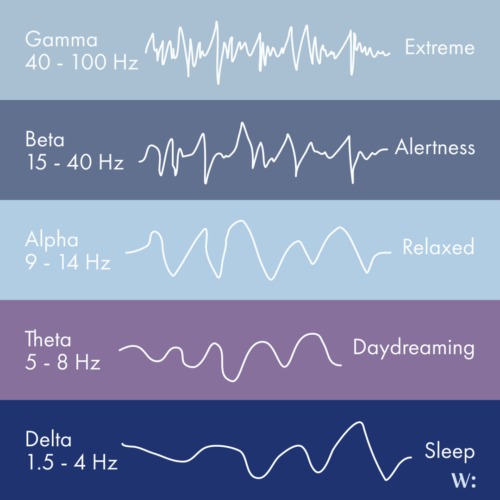Brewing the truth around instant coffee. Is it healthy?
Oh, we love coffee. And by “we” we mean the world. Data varies, but humanity probably consumes around 2 billion cups of coffee… every day! It’s the most widely consumed beverage after water. But the question is, with all this coffee, are we harming our health or reinforcing it? And more importantly, is instant coffee worse than its ground sibling? It’s time to take a deep dive into the murky world of instant coffee research.

The health benefits of instant coffee
Benefits? That’s right. Let’s leave our stereotypes about instant coffee behind and look at the evidence. One British paper from 2017 analysed a whopping 218 other analyses of coffee. We will repeat that, 218 analysis papers! And each one of those papers reviewed a number of studies on coffee. If there ever was The Review of coffee research, this is it.
It found that on average, coffee consumption was associated with a reduced risk of cancer, cardiovascular disease, and death in general. Although, in pregnancy, coffee was associated with low birth weight, preterm birth and pregnancy loss. The researchers concluded:
"Apart from pregnant people, consuming 3-4 cups of coffee a day is more likely to benefit health than harm it."
It’s crucial to understand that most of this data was drawn from observational studies, not trials. We can’t say that if you start drinking coffee, you will reduce your risk of diseases. Rather, people who drink coffee tend to have less cancer, and cardiovascular diseases and live slightly longer. Correlation, not causation.
But okay, how about instant coffee then? Is it the same as regular ground coffee? Well, yes and no. Let’s start with the “no”. Instant coffee contains slightly less caffeine and about double the acrylamide. Acrylamide? – you might ask.
The concern around instant coffee
Acrylamide is totally not a pleasant molecule. It’s probably carcinogenic in humans, and high doses of it are quite carcinogenic in mice and rats. All types of coffee contain it, but instant coffee just has twice as much of it as ground coffee. With that said, should you be worried?
Hold your breath, we’re going to do some math. We’re entering deep-analysis mode. By the end of this section, you will be able to determine yourself whether you think acrylamide is a concern for you.
Is there a safe amount of acrylamide? According to the EFSA (European Food and Safety Authority), there isn’t really a completely safe amount of acrylamide – just like there isn’t a safe amount of alcohol. However, one American paper from 2010 concluded that 2.6 micrograms of acrylamide per kg of body weight per day can be tolerated. Coming back to EFSA, it states that the lower daily level for when you can start detecting cancer is 170 micrograms per kg body weight. That was a lot of words, let us make it clearer:
"If you weigh 70 kg you can probably tolerate 182 mcg of acrylamide/day, and at the 11,900 mcg/day mark, you can likely start detecting cancer."
Okay, but how much acrylamide is in one cup of instant coffee? One Polish paper has found it to be roughly 1 microgram per 160 ml of instant coffee. To be completely sure, let’s look at more data. One Turkish paper found that instant coffee contains a range of 2.64-12.72 micrograms of acrylamide in 160 ml of instant coffee.
"160 ml of black instant coffee with no milk can contain 1.0-12.72 micrograms of acrylamide."
So is that safe? Picture this. You would have to drink 15-182 cups of instant coffee to reach the tolerable limit of acrylamide, and 936-11,900 cups to reach the limit when you can start detecting cancer. Considering you do 160 ml cups of black instant coffee. You would have to drink twice as much ground coffee to reach these limits.
Seeing this data, it seems like drinking instant coffee is fine, as long as you do it in moderation (less than 15 cups). Across sources, 3-4 cups per day is usually recommended for the best health effects.
But wait, we need to be smarter. Coffee isn’t the only source of acrylamide in our lives. Fried potato products, crisps, breads and crackers all contain significant levels of acrylamide. In fact, acrylamide usually forms when we see some “browning” or “goldening” of our foods. The highest levels of acrylamide are found in cigarette smoke though.
"As long as you drink instant coffee in moderation, you are unlikely to go over the limit of acrylamide. But keep in mind that fried foods, bread, crackers, and cigarette smoke also contain acrylamide."
The instant coffee-acrylamide paradox
When we look at isolated compounds on their own (like acrylamide) it can seem that any food that contains them is going to be harmful to our health (cancer in this case). But coffee consumption, in general, is linked to better health and lower risk of cancer! How is that possible?
Looking at one molecule in isolation can make us miss the bigger picture. Yes, one molecule in coffee can be cancerogenic, but coffee can contain 1000 different molecules, some of which have anti-inflammatory and antioxidant effects. Acrylamide in ground coffee and instant coffee might be unhealthy, but overall coffee seems to benefit health.
In this long journey of coffee research and analysis, we think it’s smart to follow the advice given on the FDA’s website: You shouldn’t stop eating foods that contain acrylamide. That’s not where the attention needs to be. Instead, focus on adopting a healthy eating plan which contains plenty of fruits, vegetables, whole grains, legumes, nuts, lean meat, low-fat milk products, and fish, and limit the consumption of saturated fats, cholesterol, salt and added sugars.
The takeaway
- Nutritionally, instant coffee is similar to ground coffee but it contains twice the amount of acrylamide.
- Acrylamide has been shown to be carcinogenic.
- The amounts of acrylamide in instant coffee stay way below tolerable levels.
- In fact, people who drink coffee have a lower risk of cancer, better heart health and a longer lifespan on average.
- Across sources, it’s recommended to drink 3-4 cups of coffee per day.
And here we are. As for the stereotype that instant coffee is unhealthy, it seems to not be true. Having said all of that, the best way to drink your coffee is without adding sugar and if you like it with milk, opt for skimmed or semi-skimmed. That’s what’s going to make a difference health-wise. From now on, you can enjoy your instant coffee guilt-free.
More from the magazine
Selected stories from our Team








